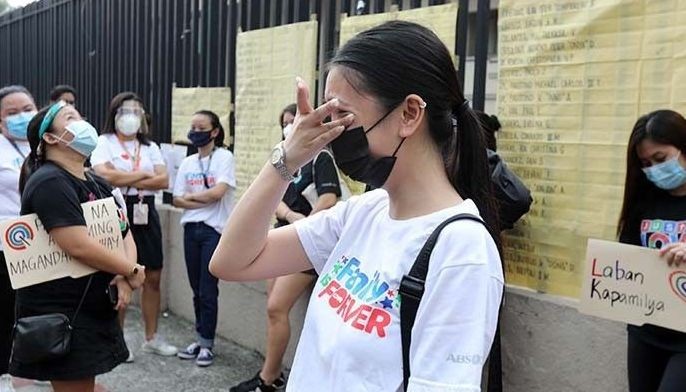MANILA, Philippines — On World Press Freedom Day, groups called attention to attacks on the press in the Philippines with this year's commemoration coming on the heels of the killing and arrest of two journalists.
In a statement sent to reporters, the Commission on Human Rights pointed to the Philippines' consistent drop in the past four years in the World Press Freedom Index released by Reporters Without Borders.
Related Stories
"This drop in ranking coincides with the recent results released by the Social Weather Stations survey which finds six in ten Filipinos agree that it is “dangerous to print or broadcast anything critical” of the current administration 'even if it is the truth,'" the commission said.
"Support against barriers to press freedom exists beyond mere rhetoric. Concrete actions need to be done to ensure that members of the media are protected in the line of duty."
CHR in its statement called attention to Senate Bill No. 1820 batting for a basic compensation scheme to include adequate compensation for hazardous media coverages and guarantee the security of tenure for media workers.
"Tomorrow also marks the first year anniversary of the shutdown of ABS-CBN, which not only silenced a major critical voice against corruption and bad governance but had also resulted to the displacement of thousands of workers in the midst of this crisis aggravated by the Covid19 pandemic," House Deputy Minority leader Carlos Zarate said in a statement.
Investigation on Heradia's death urged
In a statement, the National Union of Journalists of the Philippines condemned the killing of John Heredia, who served as municipal administrator of Pilar, Capiz.
At least nineteen journalists have already been killed in the nearly five years of the administration of President Rodrigo Duterte, according to the Center for Media Freedom and Responsibility.
In its report earlier this month, Reporters Without Borders cited the non-renewal of the franchise of broadcast giant ABS-CBN and what it described as a "grotesque judicial harassment campaign" against news website Rappler.
"While Heredia was no longer in media when he was killed, his death is a symptom of the culture of impunity in the Philippines," NUJP, of which Heredia served as former president, said.
We call for thorough investigation and a swift resolution of the case. pic.twitter.com/szOmN9duGy
— NUJP (@nujp) May 2, 2021
NUJP also pointed to the September 2019 ambush of Heredia's wife, human rights lawyer and anti-mining advocate Criselda Azarcon who "had been red-tagged in posters in Iloilo prior to the attack."
"Any platitude to be delivered by Malacañang officials today to honor media or to say that there is press freedom in the Philippines is delivered with a forked tongue. Malacanang does not want to hear the truth as they happen; they do not want criticisms of their failures as all they want to hear is their own fake news," Zarate also said.
"This is why the media, activists, the opposition and even ordinary citizens are being silenced by Malacanang and the NTF-ELCAC."
'Give voice to the marginalized'
The groups also urged journalists to be more critical in its reportage of the Duterte administration in the wake of attacks on press freedom.
"What is needed now is for all journalists to stand up for the truth and be more analytical and even critical so as not to spread the fake news, disinformation, revisionism, and red-tagging being peddled by the Duterte administration," Zarate said.
"Journalists must help the poor and disadvantaged to be heard and not be silenced by threats. It is only by doing this can we ensure that press freedom is alive in the Philipines."
"As journalists give voice to the voiceless poor and marginalized. No time is better than now to support them in their fight for truth and justice," CHR also said. — Franco Luna


